I went on a nice walk with Digi Dave and Kim to Palona Creek in Royal National Park. Palona Creek is a tributary of the Hacking River and is reached by a short walk along Lady Carrington Drive.
When we reached the creek, we headed up a side track to the Palona Cave. The turn-off sign is marked “Limestone Cave”, but as far as I know this is wrong. The cave is not a limestone cave. Its about a ten minute walk to the cave from Lady Carrington Drive and when you arrive you can clearly see that it is in a sandstone cliff. The cave does have some speliothems however – some large columns and some very tiny stalactites. These are probably formed by evaporation rather than chemical means.
I had been hoping that the track to the cave passed through rainforest and that there might be some fungi out. However the track is quite high and well above the rainforest of Palona Creek.
Near the cave was some fungi out. Of particular note was a strange species with spines rather than gills or pores. It was probably a type of Hydnellum.
The waterfall at the cave is also nice. It would be quite impressive in high water.
We then headed back to Lady Carrington Drive and went down to where it crosses Palona Creek. Here there is rainforest and an old picnic area. And this was where the fungi was. We found one type after another. And this included lots of things I had not see before including Hairy Fairy Clubs. Kim spotted these – a small type of black fungi on the forest floor.
Digi Dave spotted a very strange translucent jelly fungus next to a log. I found a few more nearby and noticed that they had spines. These were Jelly Tongue Fungus. Adding to the strangeness were lots of dark grey cup fungi.
We had lunch at the picnic area and spent quite a few hours looking for and photographing the fungi.
This was a very worthwhile excursion. More photos are online here.

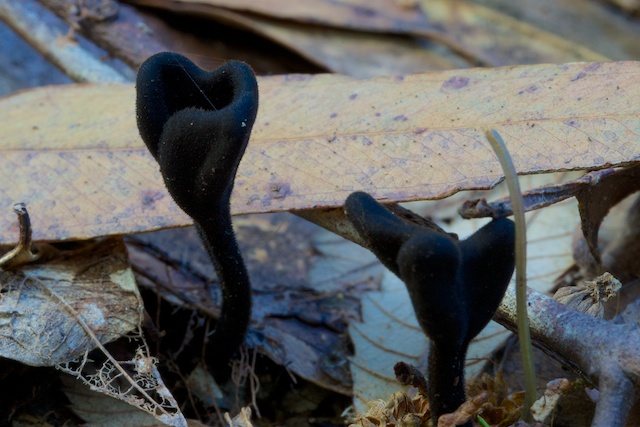
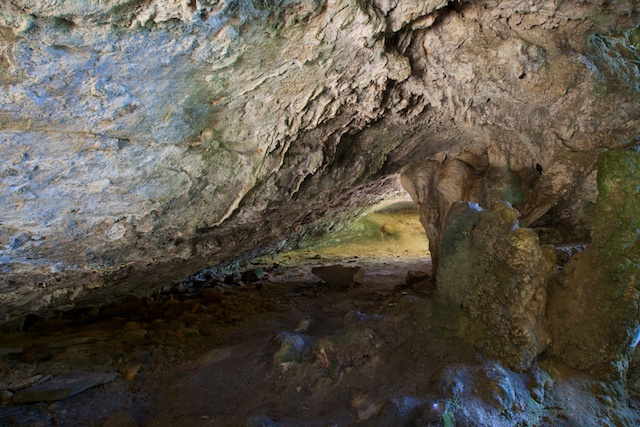

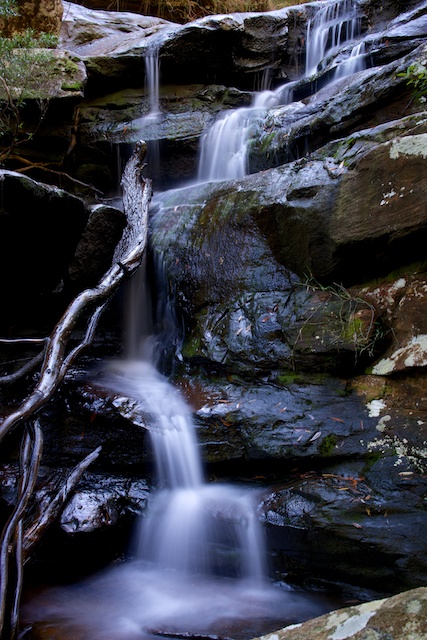
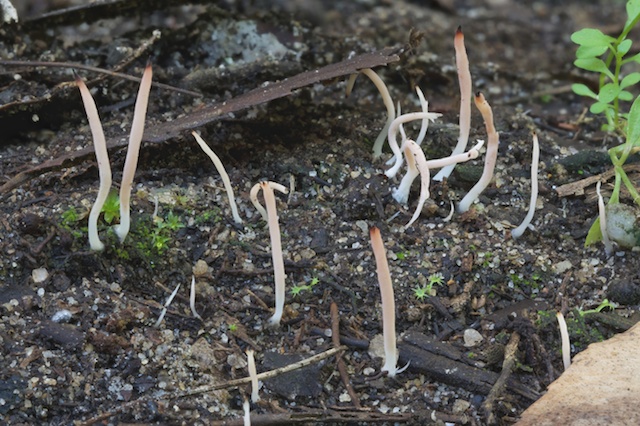
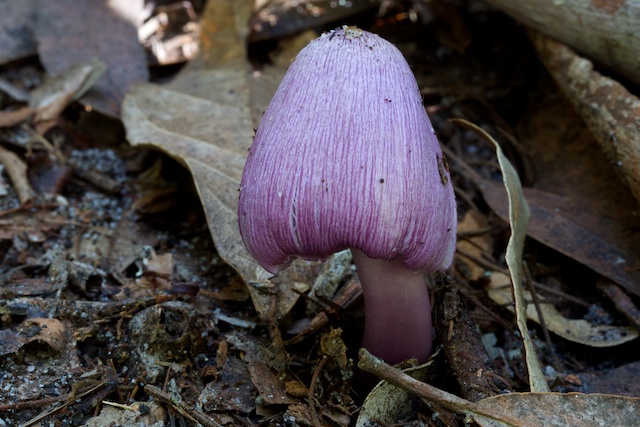
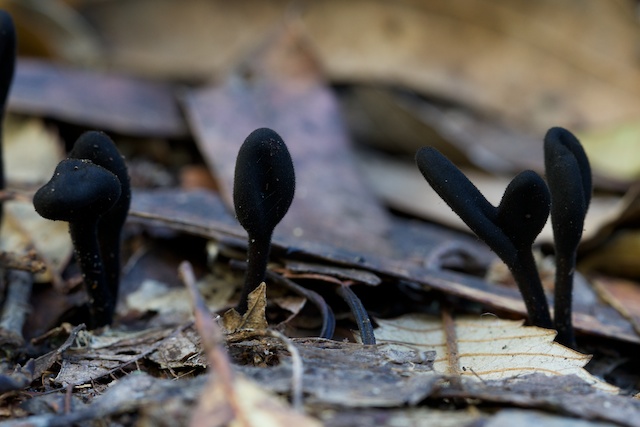
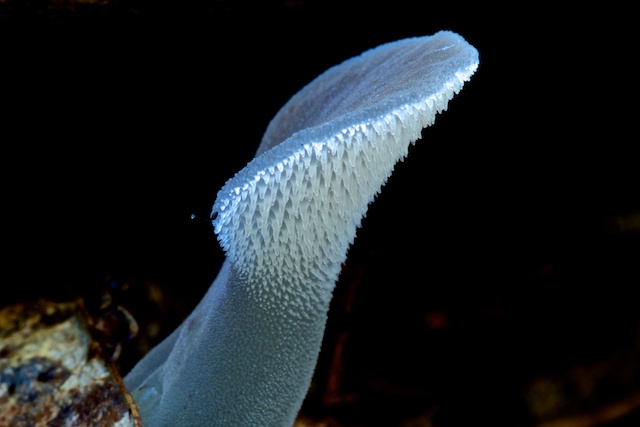
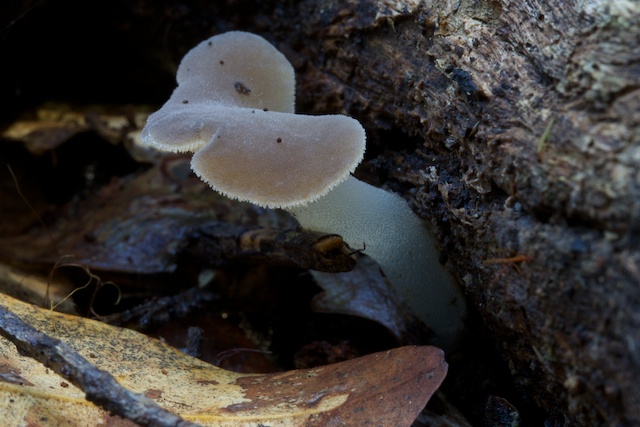
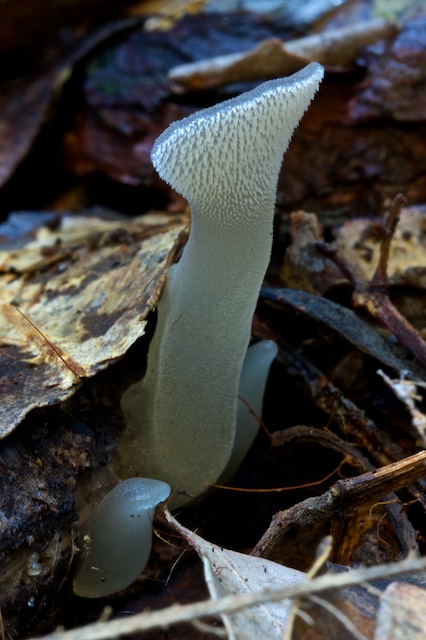
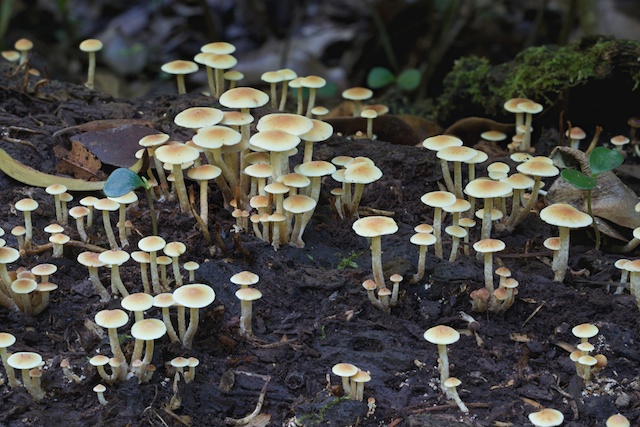
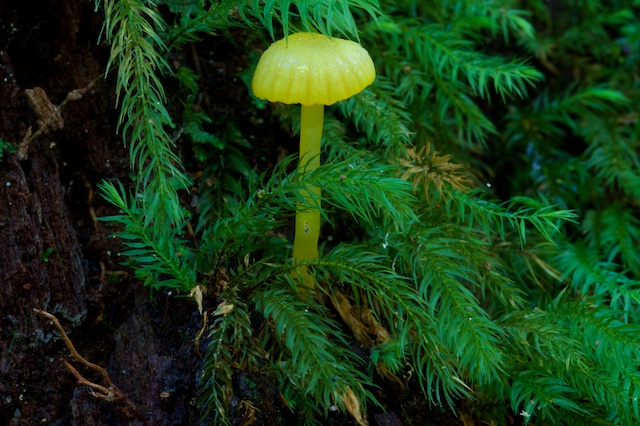
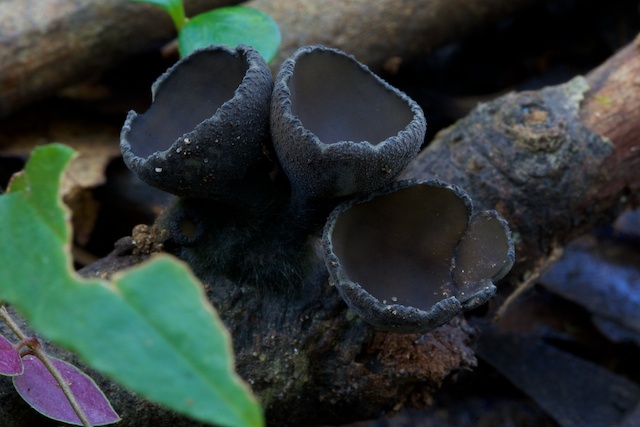
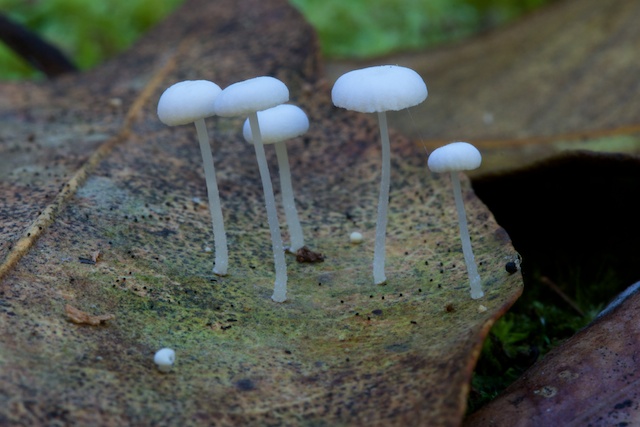
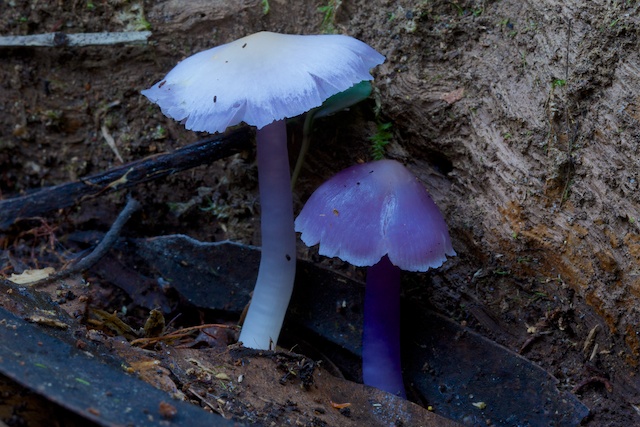
Very nice, there was a lot more there than the Blue Mountains. The white fungi below the Hydnellum sp looks very much like a Hygrocybe sp.
Also, the Cortinarius archeri is Humidicutis (or Hygrocybe) lewelliniae.
Thanks Ken – I appreciate your feedback.